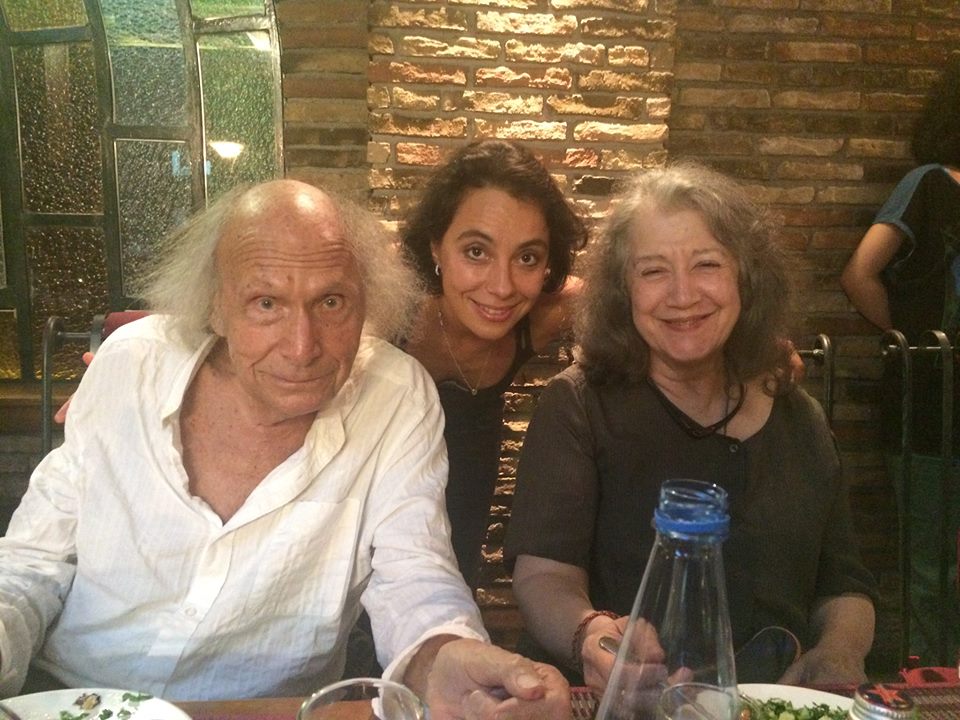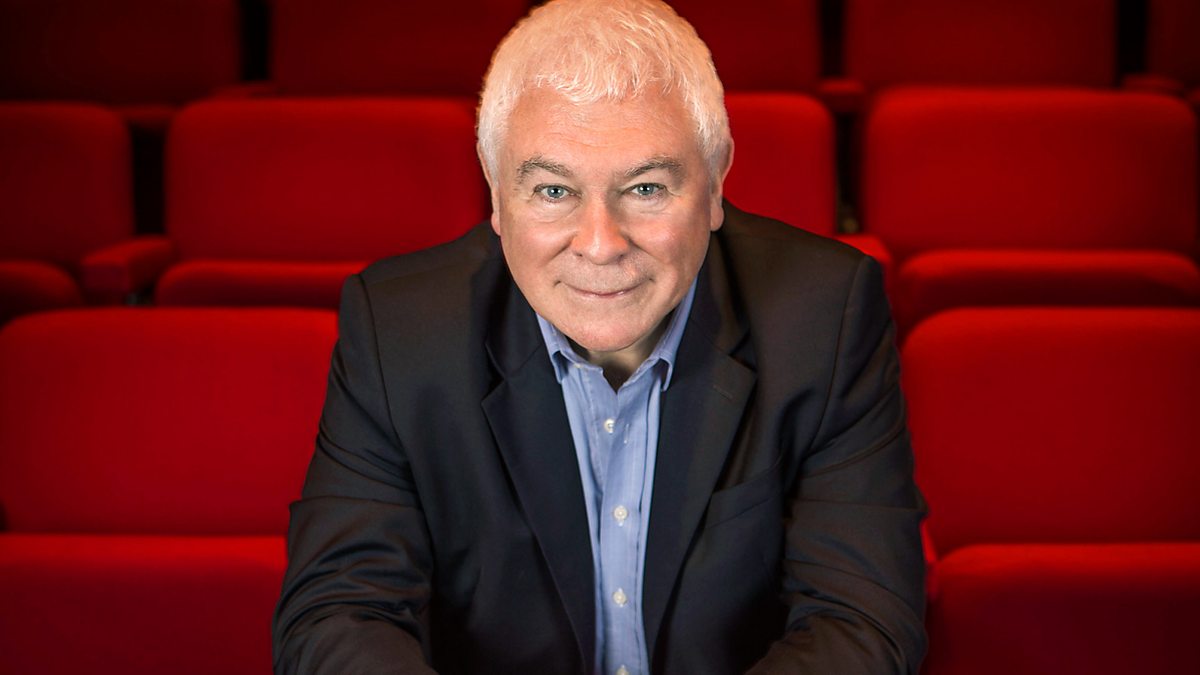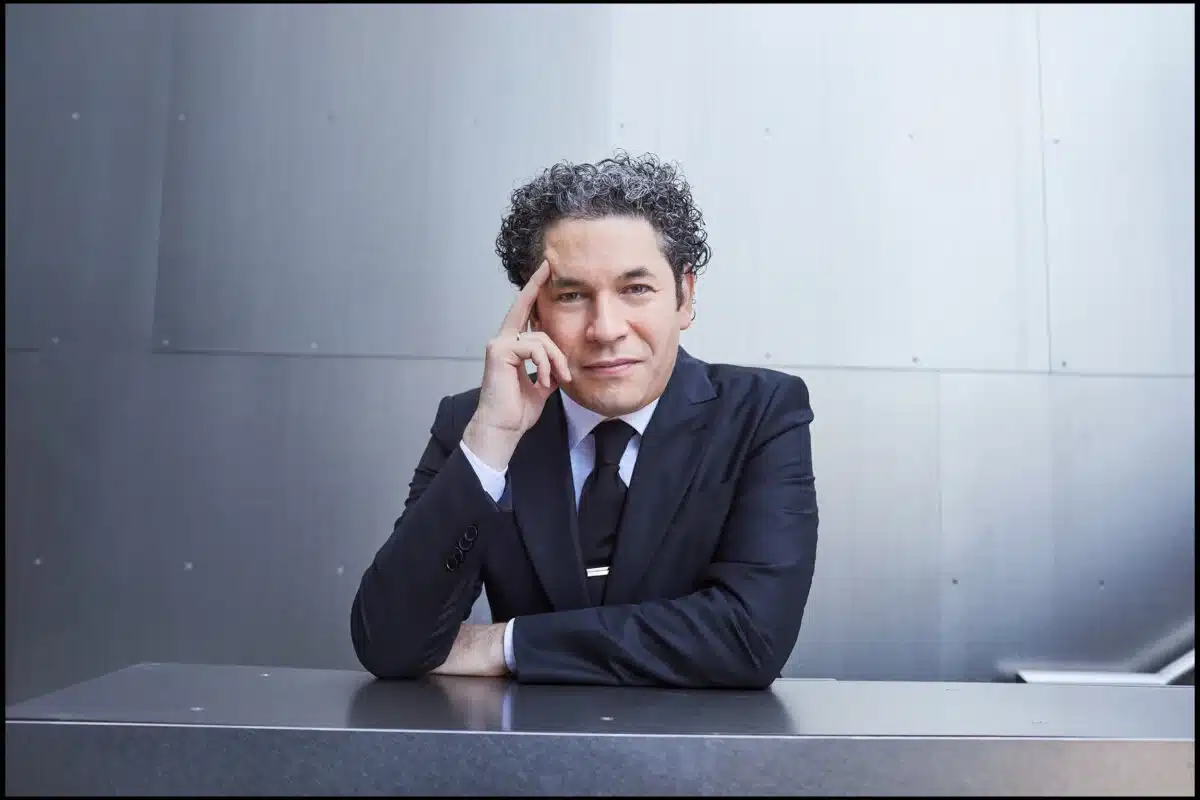There’s only one Ivry
mainThe cellist Steven Isserlis has published a short appreciation of our violinist friend Ivry Gitlis, still going strong at 97.
Normally one writes an article about a famous figure on the occasion of an important birthday – or in their memory. But I want to write briefly about Ivry, because I’ve just seen him, and I want to pay tribute to him while he’s still here. I recently spent time with him in Paris – his home for many years; he is now well into his 98th year, and I can’t pretend that his health, or – alas – his spirits are as buoyant as they were until quite recently. But – he is still Ivry; very much so!
Ivry was born in Haifa, in what was then Palestine, in 1922, to Russian parents. As a young boy, he was taken to play to Hubermann (he remembers meeting him on the beach); this led to him being brought to Europe to study, his teachers including such legends as Thibaud, Enesco and (principally) Carl Flesch, in whose class he studed alongside Ida Haendel, Ginette Neveu, and his close friend Josef Hassid, the astonishing violinist who was to die so tragically young. The 2nd world war intervened, and Ivry ended up in London. (At some point, he apparently went on a date with my mother! She always remembered it – but he, not very flatteringly, has forgotten.) After the war, he embarked upon an international career, becoming particularly famous in France, but playing with great, if sometimes controversial, success worldwide. His career was always rather different from that of any other violinist. In addition to playing and recording with many of the world’s most famous orchestras, he always wanted to branch out into other areas: he acted in several films, including one directed his friend Francois Truffaut; performed with Marcel Marceau, and with John Lennon and Yoko Ono in the Rolling Stones’ ‘Rock and Roll Circus’; and spent a lot of time in Africa, performing in various countries. He has always been a maverick, musically and personally; and has for that reason always felt somewhat excluded, despite his many many admirers (including, crucially, Martha Argerich , who has remained a wonderfully steadfast friend to him).
Being with Ivry is a very special experience; there is no-one like him. He thrives in the presence of others – demanding constant attention, it’s true, but also exuding warmth and affection. He loves Jewish jokes (and tells them brilliantly!), and he loves to recount stories from his fascinating life – among the ones with which he regaled me on this recent visit were his final visits with Heifetz, a chance meeting with Marlon Brando, and – ahem – his first amorous encounter (very funny). We listened together to a performance he gave in Rumania of the Brahms concerto. (Typical Ivry: I asked if he’d recorded the Brahms; he said he hadn’t, but there might be some recording of a concert somewhere. I looked on Youtube, and indeed there it was. ‘Really? I didn’t know!’ he said. ‘Let’s listen.’ So we did; as we approached the end of the first tutti, he remarked: ‘I mess up the beginning, but after that it’s good.’ Funny – I thought he hadn’t heard it!… Haha.) It was extraordinary – such intensity, almost manic at times. (Even he said that it was if he had a red-hot stick up his backside!) But wonderful, unique – as Ivry is! The only player I can think of – and I’m by no means the first to suggest this – whom he resembles at all is Daniil Shafran. Both of them are laws unto themselves, to whom the normal ‘rules’ just don’t apply. And both felt like musical outsiders.
Ivry is worried that his playing will be forgotten when he’s gone – is forgotten now. I spent much of my time with him reassuring him that that is not the case, that he has a legion of new fans now. I suppose that that’s the main reason for my writing this little article – in the hope that people will get in touch and let him know how much he is loved. Of course I can’t give out any contact details here; but I urge anyone who has any indirect contact with him to try to get in touch – and any young violinists who might have the chance to try to get to play for him. Ivry loves people – and suffers terribly from loneliness. His moods are variable (in a sad moment on one of these recent visits, he wondered whether ‘life is just a joke – a bitter joke’.) But spending time with him is also uplifting – and always memorable. Despite the frailties that are inevitable at his age, he is still a reliable source of thought-provoking wisdom about music, and about life in general – as well as being great company. I do hope that he spends the rest of his life feeling celebrated – he so deserves it.
Written with love.







It’s a crazy world where Menuhin recorded the same pieces over and over (I think there were 4 or 5 recordings of Beethoven concerto and 3 or 4 of the Brahms) and yet for Gitlis you have to go poking around on YT. Much more of Gitlis should have been recorded
The one and only inimitable Ivry. When they made him, they broke the mould.
Interesting and honest article.
A vivid memoir, Norman. Ivry gitlis belongs in the company of his great teachers, colleagues, and fellow students, the dazzling roster of Bronislaw Hubermann ,Jacques Thibaud, Georges Enesco, Carl Flesch, Neveu, Hassid, Haendel, Heifetz, all remembered as long as records endure. His movies also, which are a surprise.
The first (and only) time I heard Ivry Gitlis was memorable. It was after the 1967 War and he was on a US tour, to raise funds for Israel, and indeed his appearance in Milwaukee was a fund raiser. The venue was a ballroom at the University of Wisconsin – Milwaukee, not good acoustics to be sure, and he and the pianist were on a raised platform with a railing around it – one could see that he felt a bit inhibited by that railing. Alas, the rather large audience was there to raise funds (and to be seen to be raising funds) way more than to hear violin music and the chattering, and moving about, was infuriating and unprecedented in my experience. Gitlis pretended hard not to notice but he had to notice. My father was fuming at the sheer rudeness of it all. Even more distractingly, the people running the facility kept turning a sound system on and off so a buzzing sound also interrupted the music, and now and then lights would be randomly turned on and off.
Relying on memory I think the first half was the Brahms Sonata No. 3 and the Bach Chaconne. The second half was going to be the Franck Sonata, my father’s absolute favorite, and the major reason we were there. Not a light program to be sure.
But Gitlis came out after intermission and announced with a strange little smile that in response to “many requests” he was substituting … the Bartok unaccompanied violin sonata! For an audience that had found Bach and Brahms hard to take! I suspect there were no such requests. This was the first time either my father or I had heard the piece. I suspect most of the audience had never heard the piece and very much wanted NOT to hear the piece. It is of course dissonant and a real gut-punch, particularly in the Fuga (and Gitlis’s recording for Vox is one of the great ones). The audience noise and rudeness and moving around increased to the point where in in the ethereal Melodia third movement we simply could not hear him play and I suspect he could not hear himself. He abruptly stopped playing. Slowly he put his bow down on the piano lid. Then he very slowly put his violin down on the piano lid. The audience got nervously quiet very quickly. I was thinking, “this audience is about to be scolded, or he is going to end the concert right here.” But no. After scowling for a moment, he pulled out an enormous handkerchief — and blew his nose! And it was a real honk. Then he picked up the bow and fiddle and started the movement over again. The audience was quieter. A little. And he took pity and added Saint Saens to the program after that.
Never have I been to such a strange concert experience.
On the drive home my father said he had never heard a ruder and more disrespectful audience, and had never seen such unusual bowing. “Don’t bow like that, I don’t want to see you ever bowing like that.” “But Dad, it sounded great.” “I don’t know how he does it, but he knows how to make it sound great. You don’t.” As usual Dad was correct.
Ivry played the Sibelius Cto. with what was then the Denver Symphony (I was in the 1st violins) during either the ’55-’56 or ’56-’57 seasons – I can’t remember which. It was quite an individual and arresting performance, to say the least.
In attending a Brussels Conservatoire fund-raiser in ’01, we heard Ivry and Martha play the Mendelsson D minor Trio along with a young faculty cellist. Afterward, I reminded him of the Denver Sibelius, going on to have an animated coversation…
His Bartok Cto. recording is among the best.
Precious. Thank you, Mr. Isserlis
Hard to obtain at present, so how about a new release of his wonderful Franck/Debussy sonatas with Martha Argerich ?
Frank/Debussy sonatas alone:
http://www.arkivmusic.com/classical/album.jsp?album_id=186696
Included in this Argerich/Sony-BMG set:
http://www.arkivmusic.com/classical/album.jsp?album_id=2188389
I own the set. Very worthwhile.
Excellent. Thank you so much.
It can be found on iTunes on a Martha collection, if I recall correctly. Easily the greatest recording of Debussy Sonata!
A delightful portrait of one great musician written by another.
I can’t forget the last “golden period”, the one where he gave masterclasses in Pont St Esprit.
Recording those masterpieces of performances – Schumann & Brahms, and watching him rehearse the Strauss sonata, was a lesson in itself.
He also did a Mendelssohn octet one year with the pupils.
They watched and listened rivetted and delivered as good as they got.
Happy christmas Ivry!
May your coaching be with us for ever!
Ivry is an artist who was ahead of his time. Unique, inimitable, and incomparable. His recording of Wieniawski’s Violin Concerto No. 1 is amazing. He’s a beautiful soul. I’m sorry I never met him or attended any of his concerts. I don’t believe he ever played in South Florida. I’d give almost anything to share a bottle of fine wine and listen to his stories.
I don’t agree with “Ivry being ahead of his time”.
No, the dramatic truth is the reverse.
He is a figure of another entirely different generation, where time was different…
wonderful quote again “rubato is the art of playing in time”!
This generation of Thibaut, Enescu, had TIME, yet achieved so much more than those “career artists” living in airport lounges, and jetting from hall to hall.
So much is wrong with the way we live, the way people talk, and simply so little REAL MUSIC.
Not notes MUSIC.
I have heard him multiple times talk about the holocaust.
I know this remains an immensely painful theme for him and others of his almost disappeared generation (Pressler is almost the same age).
The drama, is, we are condemned to repeating history, a tsunami of ignorance has overtaken generations since the 1980s, and again I heard Ivry talk of a general chloroforming of sensibilities since the war.
We don’t have anyone left of this stature any more, says it how it is, and doesn’t tolerate sheer stupidity and PR gladly.
(I remember him giving an ignorant press journalist a really hard time).
One jewel again:-
The Kreutzer sonata is it the “terror” of violinists… “yes and we are the terrorists!”
We are condemned to “career artists” who have very little original to give, even less of that magic element “vision” and of course transferring the legacy of those great artists of the past.
I recently had a chat with him about Kogan, who he esteemed extremely highly, rating him maybe even above Oistrakh who he knew as a friend very well..
How to say this?
So much done in such a long life, from Haifa to who knows where next…
Ivry I don’t want your voyage to end.
We would lose someone so unforgettable.
A very sweet thing to have written by Steven Isserlis.
I will never forget that evening in Autune France in the Cathedral and listening to Ivry. Just memorable.